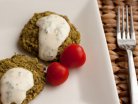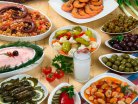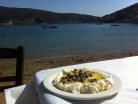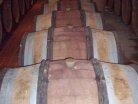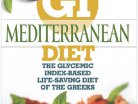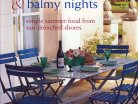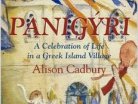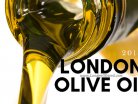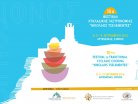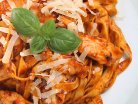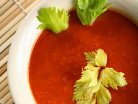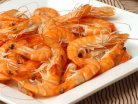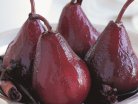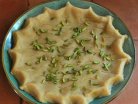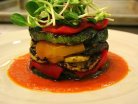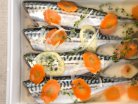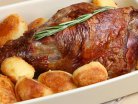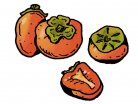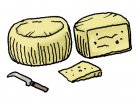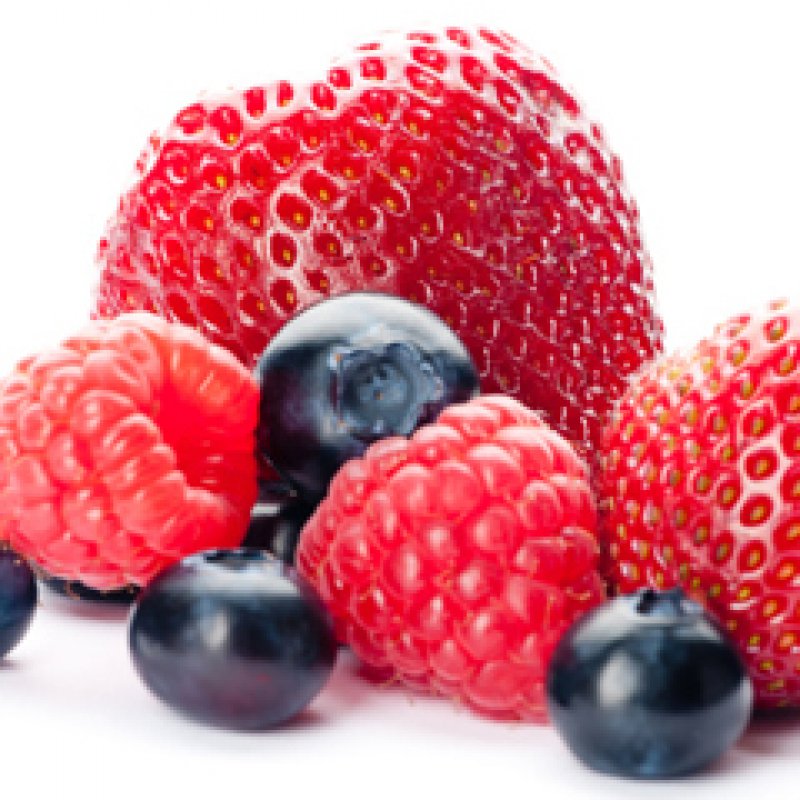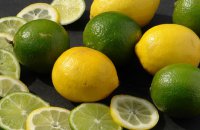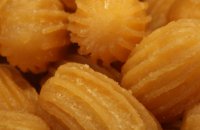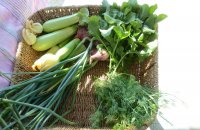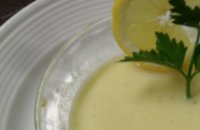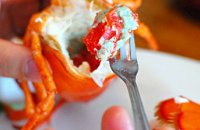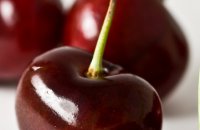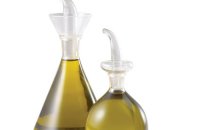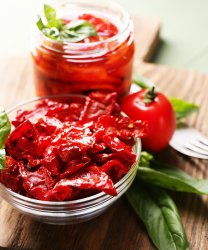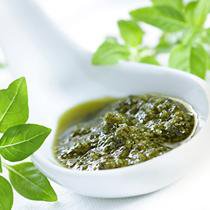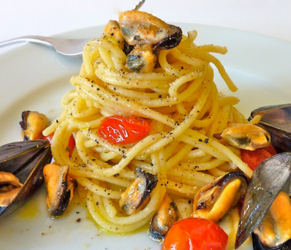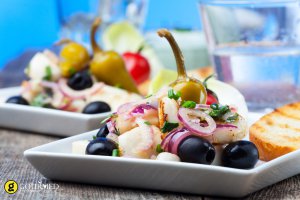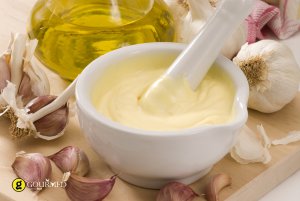Until a few years ago, experts believed that megadoses of certain vitamins or trace elements functioned as elixirs, reversing or at least slowing the process of aging. Now, however, the facts at hand indicate the opposite: small doses of vitamins and low concentrations of trace elements are more effective in the fight against aging. The dosages that experts now recommend are in fact exactly the same as those of a normal diet- with a few tweaks, of course.
Generally, the foods that are considered to have “anti-aging” properties are those that are high in anti-oxidants. Such substances can be found in foods that contain vitamins A, C, E, beta-carotene, and flavinoids. In addition to antioxidants, foods containing manganese and selenium, such as fish oils, are also effective in the fight against aging.
Breakfast:
For breakfast, opt for fresh orange juice and whole-meal toast or rusks with honey and some nuts.
What they offer: The vitamin C and flavinoids present in oranges, along with the antioxidants in the nuts, will help you to start your day with a detox after your night on the town. A nice idea is to squeeze the juice of half a lemon onto a plate, add three teaspoons of honey and mix them together, then add the freshly ground walnuts. This makes a marvelous ‘jam’ for your toast and, since you’ll find this to be so revitalizing, you’ll forget about coffee. In general, avoid coffee; it can cause your bladder cells to age prematurely. Nuts contain polyunsaturated fatty acids- elements that protect the heart and blood vessels, while raisins are another good idea, given that they are so replete with antioxidants.
Snack or mid-morning:
At around 11:00 am, eat a piece of dark chocolate or have a cup of tea with honey and lemon. If you’re still hungry, go for a sesame bread ring or sesame bar as well.
What they offer: Chocolate contains flavinoids, but unfortunately also contains high quantities of calories and fat. If you intend to consume sweets and fats later in the day, opt for a cup of tea because it also contains large quantities of flavinoids while remaining low in fat and calorie content. By adding lemon, you’ll take full advantage of the tea’s flavinoids, as they will be fortified by the vitamins present in the lemon. Honey will make the tea more invigorating, thus replacing your need to consume carbohydrates. Honey will help you to avoid sugary snacks or soft drinks, substances that are believed to cause aging. As a general rule, if you need energy or are craving something sweet, honey is your best option. Lastly, opt for something with sesame as a main ingredient, as sesame seeds contain the beneficial fatty acids that clear the blood vessels.
Lunch:
For lunch, have some peppers and tomatoes stuffed with rice, parsley, and dill (a Greek dish known as “yemista”). Add pine nuts and raisins to the rice. Perhaps accompany your yemista with a nice salad of grated carrot, pine nuts, and raisins, seasoned with a little olive oil and lemon. Or you can add sliced red or green peppers to a tomato salad, along with half of a grated carrot. Note that the most effective salads for anti-aging purposes are those with tomato and chicory. Another good choice for lunch is grilled or baked fish. When baking fish, add two sliced tomatoes and lemon juice. If you would prefer meat instead, have a pork chop covered in lemon juice. Then, follow your meal with grapes.
What they offer: While providing you with considerable energy, yemista will also cover all the essential anti-oxidants, as the parsley, dill, pine nuts, and raisins, are rich in anti-oxidants. Similarly, the grapes you might want to consume as dessert at the end of your meal are a terrific source of antioxidants. Carrots, and peppers, as well as tomatoes, contain plenty of vitamins, especially carotene. Fish is widely considered to be the healthiest of all ‘flesh’ foods, so never feel that you are consuming too much of it. If you are a frequent meat eater, try to increase your intake of salads and fruit, as meat contains myriad toxins and oxidants. As a general rule, meat eaters must double average quantities of fruit and vegetable consumption in order to compensate for the harmful substances contained in meet.
Afternoon snack:
Have a small sandwich comprised of grilled eggplant, tomato, olives, and white cheese. Drink tea too. If you don’t like the idea of a sandwich, or don’t have the time to prepare one, you can have tea with nuts or rusks. Another good choice is spinach pie.
What they offer: The “Mediterranean sandwich” is a very healthy solution for afternoon or lunchtime hunger pangs, as it is another great source of anti-oxidants and carotenes. White cheese contains no anti-oxidants, but adds plenty of flavor. White cheeses are generally lower in fat and calorie content than the yellow varieties. Tea is rich in flavinoids, while nuts contain considerable anti-oxidants. Like nuts, spinach is very high in anti-oxidants, but lower in terms of fat content. If dieting isn’t an issue, nuts, and almonds in particular, are ‘medicine’ for your body, containing proteins and vitamins which are difficult to find in other foods and aiding in the body’s absorption of vitamins and minerals. Of course, meat is another great source of protein, but it is much higher in toxins and oxidants.
Dinner:
Try making the Greek dish known as ‘briam,’ a dish that involves eggplant, green and red pepper, potato, tomato, zucchini, onions, and parsley. Accompany the meal with feta cheese and some broccoli. Have one or two glasses of red wine, and then follow your meal with fruit, preferably an orange.
What they offer: ‘Briam’ (oven baked vegetables in olive oil) relaxes the cells of the gastrointestinal system, while providing your body with a wealth of ingredients high in carotene and anti-oxidants. One of these is the humble parsley, an ingredient that is incredibly high in fiber, thus keeping the intestinal cells young and fully functional. Parsley is rich in vitamin C, folic acid, sodium, calcium, magnesium, phosphorus and iron. Add it to anything and everything. Oranges contain four times the level of carotene as apples do, as well as ten times the amount of vitamin C. Generally, it’s best to eat ripe oranges, as unripe ones are more acidic and potentially harmful to the stomach. Broccoli is one of the best anti-aging salad vegetables, while wine is rich in flavinoids.
Before bed:
Before going to bed, eat some yoghurt that has been left out of the fridge for half an hour (don’t eat it cold, straight out of the fridge). Traditional yoghurt with a layer of cream on top is best, whether you choose to eat the cream or not.
What they offer: Yogurt is considered to be anti-aging due to statistical evidence. It is thought of as an elixir because it is eaten in large quantities in Central Asia, a region of the world renowned for the longevity of its inhabitants. Its supposed anti-aging qualities derive from the traditional ‘live’ elements contained in it: bacteria. Such substances maintain the mucous membrane of the intestines.
Why these foods and not others?
The above-mentioned suggestions do not exclude other foods; they simply indicate that certain foods are more effective in anti-aging endeavors than others. Here are some other suggestions: artichoke a la polita because, apart from the beneficial carrot, olive oil and lemon, artichokes contain carotenes and vitamins C and E. Similarly, fish soup with egg and lemon sauce, boiled mountain greens with olive oil and lemon, cod with vegetables, or boiled snails are dishes that contain the ingredients that will slow the process of aging. For die-hard meat eaters, meat in lemon sauce, rabbit, chicken or turkey could help. Generally speaking, fruit and salad vegetables are considered to be highly beneficial for the cells of the body when they are eaten fresh, without any processing or cooking. On the other hand, certain salad vegetables, like chicory, retain their anti-aging properties following cooking. The fact that all fruit and vegetables contain anti-oxidants is not enough to put them all on the same level in terms of health benefits. An orange, for example, contains five times as much vitamin C as a banana. Half a carrot contains ten times the amount of carotene required by the body everyday. Broccoli, on the other hand, has many anti-oxidants concentrated in the one vegetable: flavinoids, vitamins E and C, all of which cannot be found in carrots.
Anti-oxidants: Which? How many? Where?
Vitamin A: Your body requires approximately 1,000 units per day, a quantity that can be obtained from two eggs, two tablespoons of cod-liver oil, or 100 g of lamb or chicken liver, for example.
Vitamin E: The 10-15 mg a day that your body requires can be obtained from a broccoli dish, four avocados, four spinach pies, fifteen tomatoes, seven tablespoons of olive oil, or five large peaches.
Vitamin C: Women require about 75mg per day, while men need approximately 90mg. This amount can be obtained via one large orange, three tomatoes, one serving of broccoli, half a red pepper, or two cooked green peppers, among many other options.
Beta-carotene: Your body requires between 6 and 20 mg per day, an amount that can be obtained in any of the following ways: one medium-sized carrot, twenty apricots, or a spinach pie.
Selenium: Your body requires 0.06 mg per day, an amount that can be obtained via half a tin of tuna, half a salmon steak, a turkey leg, calf liver, or a mackerel.
Flavinoids: Because there are over 4,000 different kinds, some of which are more effective than others, there is no concrete daily requirement for flavinoids. But the more food you eat rich in flavinoids, the greater your chances are of taking in the useful varieties. Products such as tea, red wine, grapes, apples, and onions are rich in flavinoids. Otherwise, opt for apricots, oranges, pomegranates and cherries; these fruits have less flavinoids, but still a substantial amount. Vegetables high in flavinoids include tomatoes and broccoli, while a nice snack containing flavinoids is chocolate. Red wine is higher in flavinoids than white wine, but both are relatively high. Have your tea with honey or lemon, both of which are rich in flavinoids. The best sources of flavinoids are raw, non-processed foods, like fruit and vegetables. In general, flavinoids are lost during the processing or boiling of your foods.
When you need a double dose:
If you drink soft drinks, you are taking in more phosphorus than you realize, which means that you require more anti-oxidants, vitamin C in particular. To be precise, you need double the recommended daily allowance. Meat eaters also require twice the daily allowance of anti-oxidants due to the toxins and oxidants present in meat. Similarly, smokers need twice as much vitamin C as non smokers. In fact, either consuming substantial amounts of alcohol or smoking neutralizes the benefits of beta-carotene.
The Foods That Can Keep You Young
Along with Gourmed's answers to some frequently asked questions, scroll down to find some dieting suggestions that experts believe will fortify you in your fight against the onset of age. You’ll notice that all of these suggestions have a charming Mediterranean twist to them.
Category:
Related Articles
Most Popular recipes

